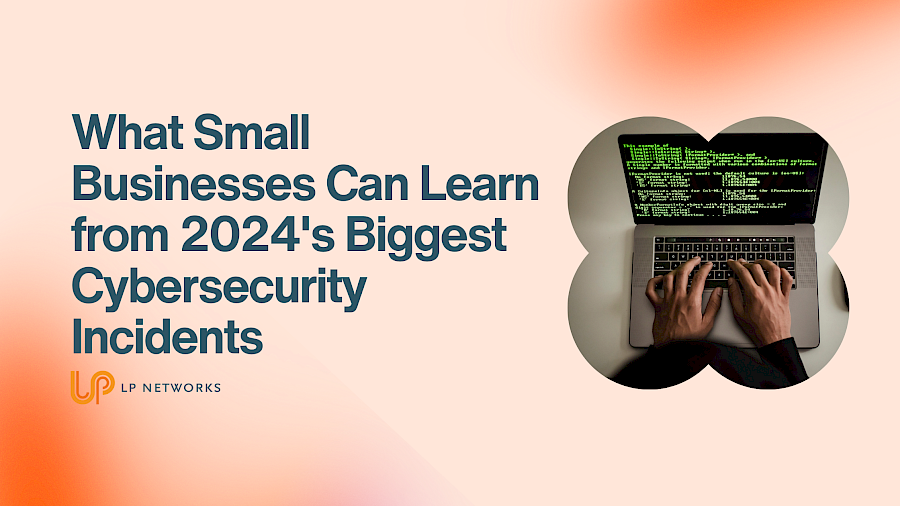- Solutions For
Specialist IT Support Services for:
- Popular Services
- Security
Security
- Our Expertise
Our Full Range of IT Services
- Learn
- About Us
- Contact
Posted 2nd December 2024

2024 has been a turbulent year in cybersecurity, with some significant incidents making headlines and affecting businesses of all sizes.
For small businesses in the UK, these stories serve as a stark reminder of the ever-present cyber threats we all face. But amidst the chaos, there are valuable lessons to be learned. By reflecting on these high-profile attacks, small businesses can strengthen their defences and avoid becoming the next statistic.
One of the most alarming trends this year has been the increase in sophisticated scams targeting small businesses and their staff. In the UK, a series of phishing campaigns have tricked even the savviest professionals. These scams often impersonate trusted organisations, such as HMRC or high-street banks, with emails or messages designed to look authentic. Once clicked, they steal sensitive information or install malware. These attacks underline the importance of vigilance and robust training for staff at every level. Even the smallest oversight can have serious consequences.
Beyond phishing, ransomware continues to dominate headlines. Globally, we’ve seen ransomware groups evolve their tactics, targeting not just data but also the operational capabilities of businesses. This year, a medium-sized manufacturing firm in the UK was forced to halt production for days, costing them thousands in lost revenue. For small businesses, a similar incident could be catastrophic. Having regular backups and a clear recovery plan in place is no longer optional – it’s a lifeline.
The rise of supply chain attacks has also been a wake-up call. In 2024, several high-profile breaches occurred not because of weaknesses in the target companies but through vulnerabilities in their suppliers or software providers. These incidents show how interconnected our digital lives are and why it’s crucial to vet the security practices of anyone you work with. Small businesses often rely on third-party vendors, from cloud storage to IT support. Asking the right questions about their security measures could make all the difference.
Finally, this year has also highlighted how cybercriminals prey on human emotions. In one widely reported UK scam, fraudsters used fake charity appeals to exploit people’s goodwill. This serves as a reminder that while technology plays a role in defence, human awareness is equally critical. Teaching staff to think twice before clicking a link or sharing information can be as effective as the most advanced firewall.
For small businesses, cybersecurity can sometimes feel overwhelming. But the good news is that many of the steps to protect your organisation are straightforward and affordable. Whether it’s implementing multi-factor authentication, keeping software up to date, or simply fostering a culture of caution, these small actions can have a big impact.
As we look ahead to 2025, one thing is clear: cybersecurity isn’t just an IT issue.
It’s a business issue, a people issue, and a resilience issue.
By learning from the incidents of 2024 and taking proactive steps, small businesses can not only protect themselves but also build trust with their customers. After all, in an increasingly digital world, trust is your most valuable asset.

